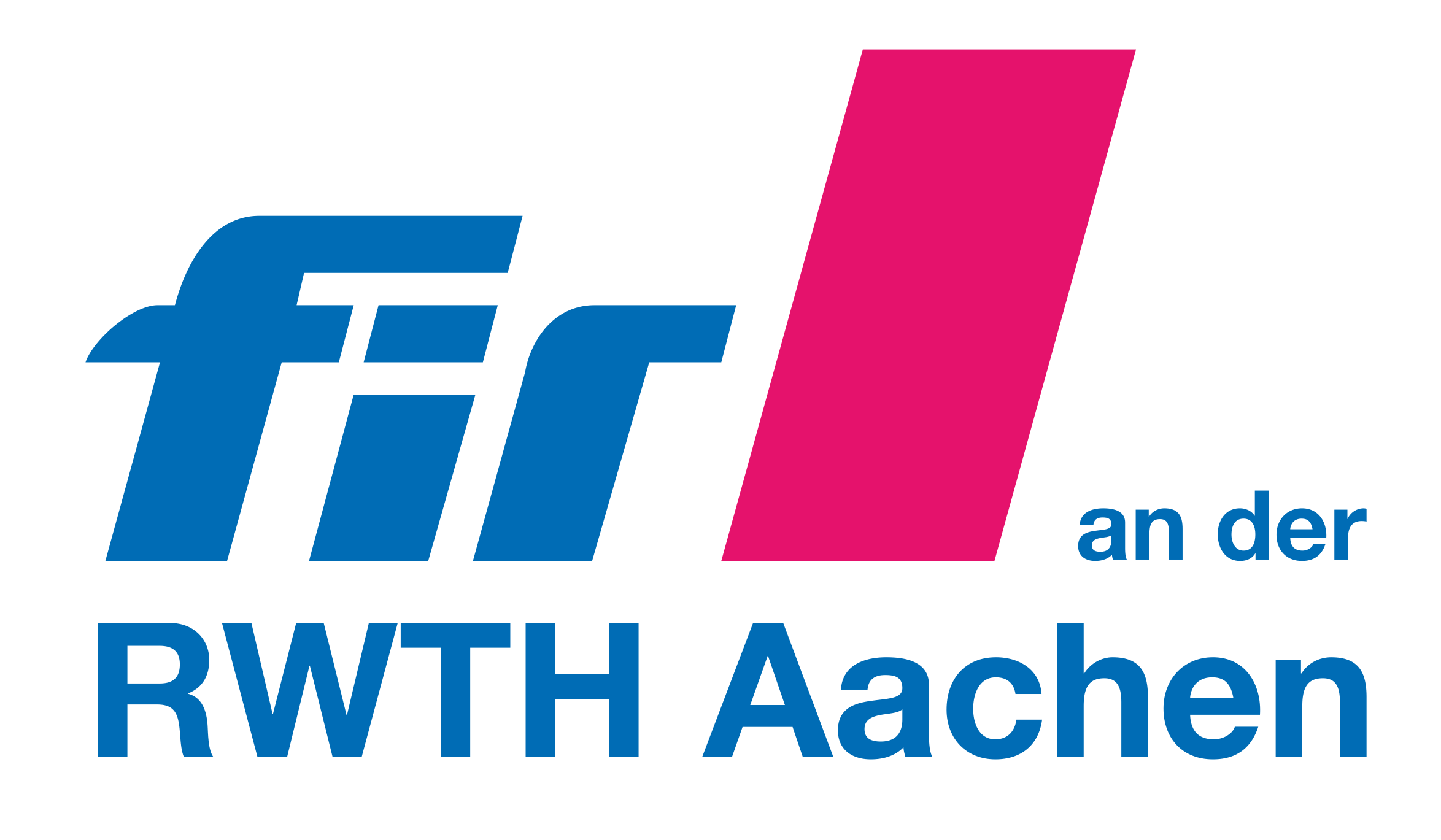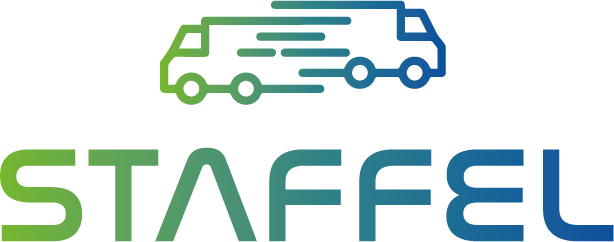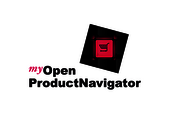Production Management
The Impact of Digitalization on Business Processes
In particular for manufacturing companies, business processes represent the link between suppliers and customers as well as within the value chain. In application-oriented research projects we investigate the influence of digitalization on business processes and the logistics of manufacturing companies.
Optimization of order processing
The aim of the Production Management unit is to optimize companies' business processes to increase operational efficiency or to develop new business areas in order to maintain and enhance their competitiveness. The focus is on industrial order processing and the involved sub-processes. This includes sales and the quotation process, procurement, as well as production planning and control through to dispatch.
In addition to information flows, the focus is on internal and external material flows. The core elements and goals of digitalization, including digital process automation and optimization as well as the collection and evaluation of data, play an important role here, as the increasing availability of technologies creates new application scenarios. New technologies have an impact on the architecture and functionalities of established business application systems, such as ERP systems, and production-related systems such as Manufacturing Execution Systems. Further, the unit explores possibilities for the optimal integration of logistics and business processes as well as the associated information systems, both within the organization and in the customer-supplier relationship. We are also researching new ways of handling master and transaction data for all business processes, i.e. enhancing the quality of data or gaining new insights through data analysis methods.
Main topics in Production Management
The Production Management unit conducts research in three subject areas:
- High-frequency, agile production planning
- Intelligent, data-supported production control
- Supply chain data management
Our Expertise – Your Benefit
- 40 years of experience and the resulting comprehensive understanding of internal and external business processes of companies of various industries and sizes.
- Knowledge of all common business application systems (e.g. ERP, MES, BDE, MDE) and relevant information and communication technology, as well as current technology trends.
- Competence in the development, application, management and implementation of research projects in research consortia, associations, and businesses from start-up to corporate group.
Bottom Line
The integration of business processes and IT systems as well as their anchoring in the company are the key topics of our research activities. The object of investigation is increasingly shifting from the transfer or the reduction of established solutions to the development and testing of new applications. With a special focus on manufacturing companies, we ensure the attractiveness and profitability of Germany as a production location.
Your Contact Persons
Further Information
Further links
Center Integrated Business Applications
UdZ Article: “Agile and User-Centric: Selection of Business Software”
Related events

We support companies in designing and implementing efficient production systems. Through the integrated consideration of business processes, IT systems as well as planning and control principles, we create integrated and efficient solution concepts.
«Tobias Schröer
Research Unit Production Management (Head)Department Research and Knowledge Management (Interim Manager)
Associated research projects

HYPRO
The research project aims to support companies in systematic and technology-based decision-making for the design of a software-based automation landscape. Organizational, procedural, and human aspects are taken into account equally. The developed approach is intended to identify both suitable processes for existing technologies and suitable technologies for existing processes in order to optimally promote automation along the order processing process.

KIbaroP
The aim of the 'KIbaroP' research project is to develop and validate an AI-based and robust approach to production planning with special consideration of SME-specific data.

VIper
The aim of the 'VIper' project is to enable manufacturing companies to independently evaluate and design the adaptability of a socio-technical information system for order processing and production.

ReMuNet
The aim of the ‘ReMuNet’ research project is to design a resilient and sustainable multimodal freight transport network for Europe.

DiCES
The aim of the research project 'DiCES' is to develop a data-based integrated value creation system of the multidimensional circular economy for manufacturing companies, which makes true circular economy completely part of the operational order processing of companies.

DRivE
The aim of the 'DRivE' research project is to develop the technical prerequisites for eco-efficient, data-based long-distance truck transport with alternative drive systems (open to all technologies). Disadvantages of alternative drives in terms of network density of charging / refueling infrastructure as well as lack of range are to be compensated by data-based vehicle transfers. To this end, real-time data from charging / refueling infrastructures and vehicles will be integrated into route planning. The solution, including the infrastructure, is to be pilot-tested on a connecting route between the German lignite mining regions.

SmartDroneWatch
The aim of the research project 'SmartDroneWatch' is to increase efficiency and safety in production operations by integrating a fully autonomous drone-based monitoring system into industrial production environments. Here, the focus is on analyzing the application potential of localization and collision avoidance technologies as well as data transmission standards.

URANOS-X
The aim of the research project ‘URANOS-X’ is to enable manufacturing companies with suitable methods to use ‘GAIA-X’ in a meaningful way.
ProMiConE
The goal of the research project “ProMiConE” is the development of a universal process mining connector for ERP systems and related use cases for process mining within the order fulfillment process.

IPPSLaBeM
The research project IPPSLaBeM – Intelligent Production Planning and Control for Laser Beam Melting – aims to develop an automated and optimized solution approach for operational application systems that meets the specific requirements of additive manufacturing (AM). The aim is to significantly reduce the manual effort for production planning and to reduce the costs of laser beam melting components by increasing machine utilization.

STAFFEL
In the STAFFEL project, a platform for organizing cross-carrier encounter traffic and an IoT-based security technology for asynchronous trailer transfer are to be designed and pilot-tested.

AKzentE4.0
The aim of the research project ‘AKzentE4.0’ is the humane introduction and implementation of Industry 4.0 concepts and technologies in small and medium-sized enterprises (SMEs) in the Aachen region. For the sustainable anchoring of results, a “Human Factors Competence Center for Employment in Industrie 4.0” is being established.

PAIRS
The aim of the PAIRS research project is to improve the management of crises that threaten the national economy for a wide range of social actors.

SEGIWA
The aim of the SEGIWA research project is to develop the basis for transferring the SILYZER 300® series from manual production to series production. In line with the national hydrogen strategy, the aim is to achieve a low-friction market ramp-up. One focus here is on the design and implementation of largely automated production processes and their linkage in a higher-level production concept.
E2E-Parameter
The aim of the research project “E2E-Parameter” is to enable companies in a supply or process chain to exchange data across companies.
EDI-Multiply
With the project EDI-Multiply the FIR actively supports the EU research project Market 4.0 regarding the integration of ERP systems and platforms in the context of EDI.

ABChain
The goal of the research project ABChain is the design of a reference architecture for block chain applications to create transparency in supply chains.

SynLApp
The aim of the SynLApp research project is to optimize the loading ramp interface by developing a solution for synchronizing production and interlogistics

Smart Speaker
The Smart Speaker research project focuses on the identification, evaluation and development of beneficial application scenarios for speech assistance systems in SMEs in mechanical and plant engineering.

iP4MoVE
The aim of the iP4MoVE research project is to design and develop an intelligent platform for the optimal coupling of the mobility and energy sectors for smart mobility.

INEDIT
The aim of the INEDIT research project is to further develop European industrial cooperation in the furniture industry using the platform of the same name.

Fit4Platform
The aim of the research project FIT4Platform is to support SMEs in contract logistics, which currently use established business models, with the successful and low-cost implementation of digital platforms into their existing business models.
Development and measurement of the digitisation of the economy in Germany
The aim of the research project "Development and measurement of the digitisation of the economy in Germany" is to measure the digitisation of the economy in Germany in its complexity and to observe it over time.
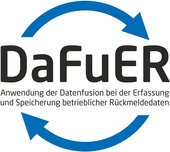
DaFuER
The aim of the project is to ensure data quality, in particular for production control and production controlling, by applying data fusion and decision fusion methods to operational feedback data.

SiLKe
The overall objective of the research project is to increase the transparency and security of food production and logistics processes and structures via blockchain technology. To this end, the project aims to enable high-resolution traceability and at the same time ensure protection against counterfeiting.

SEMF
The aim is to increase the profitability of SMEs in the manufacturing industry by developing a tool-supported decision-making aid for the implementation of systematic spare parts management.

CoE IoP
The goal of the research project "CoE IoP" is to improve cross-domain collaboration over the entire product lifecycle by real-time capable and context-dependent provision of all relevant data.

railconnect
The aim of the research project is to increase the utilisation intensities of underutilised railway wagons, locomotives and lines in rail freight traffic by digitising train clearance. Digitally supported train dispatching enables the locomotive and its coupled wagons to be located continuously. By enriching the digital process data with additional context information of a transport journey, a digital shadow of rail freight traffic and associated services is created. This is the starting point for the improvement of process efficiency and the identification of further potentials in the direction of the industry objective Mobility 4.0. As a research institution in the field of business organisation and IT in the context of logistics, the overarching subgoal of the FIR is to create the basis for increasing efficiency in rail freight and intermodal transport and to point out the resulting potentials.

EkuPro
The research objective of the AiF project "EkuPro" is the conception, development and evaluation of an app and simulation platform which supports production controllers in the objective selection of compensatory measures against delivery delays.

3Dsupply
The aim of the research project is to provide industrial companies barrier-free, reliable access to the 3D production of spare parts and components. The 3Dsupply project is designing a generic reference model for a highly flexible supply network for 3D printed spare parts.

iProd
The aim of iProd is the development and validation of a solution concept which, within the scope of Industrie 4.0, exploits the technical possibilities of digitization. The digital image of a production is the basis for the holistic analysis and evaluation of the automatically recorded data. On the basis of the examined patterns in the production system, exact predictions of the future system behavior can be made while taking account of influencing disturbing factors and accompanying deviations.
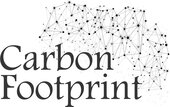
Carbon-Footprint
The projects aim was the development of a procedure with integrated calculation sequence which specifies the ISO 14067 and optimises the carbon footprint of fluid powered and electromechanical linear drives. This Method was implemented into a calculation tool which follows the needs of SME to estimate the climate impacts of a planned facility with little effort.

add2log
Within the add2log project, an inter-company software-based platform, which provides central coordinating functions for an emerging value creation network between manufacturers, logistics providers, and third parties, will be developed and implemented as a prototype. The platform makes it possible to combine and integrate the potentials of additive manufacturing and agile logistics, resulting in new business models.

APACHE
The aim of the project was to develop a decision support system for the production controller which allows a more detailed consideration of deviations in production. Furthermore, evaluating deviations makes it possible to determine which deviations urgently require action and what kind of intervention should be made. By taking account of decisions regarding deviation situations from the past future deviations can be better assessed.
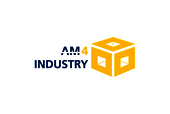
AM4Industry
The goal of AM4Industry was the development of a holistic cost-benefit-model which enables the user to decide whether or not to use Additive-Manufacturing-Technologies from an economic standpoint.

SurE
The aim of the research project was to increase the efficiency and effectiveness of search queries in ERP systems. Hereby, it reduced the effort for the user and improved the quality of the results. The achievement of the goals was realized by the development of a self-learning, context-based search engine for ERP systems. By taking into account the context of a search query, user behavior and a results evaluation by the user, the result quality of search queries was continuously increased. The development of a demonstrator was intended to show the usefulness of the concept by testing it in different scenarios and evaluating it by means of an economic assessment.

Digital in NRW
Overall target of the Industrie 4.0 competence center is to enable SME to efficient and and effective processes along the value chain by digitalization and connectivity. The three hubs Ostwestfalen-Lippe, Ruhr and Rhineland cover the target region of North Rhine-Westphalia.

FlAixEnergy
The research objective is the conception, development and prototypic implementation of a platform for the integration of industrial consumers as flexibility cluster and decentralized producers of renewable energy, that will be concluded in so called virtual power plants.

Energy Information Hub (EIH)
The central aim of this research projekt is to design a communication platform for the exchange of relevant informations between producing SMEs, electricity utility companies and machine builders. For this inter alia a business and process model will be developed which makes the EIH attractive for all participations.
CKDChain
In order to circumvent existing trade barriers, the Completely- Knocked-Down (CKD) strategy has prevailed in the automotive industry. Instead of an export of fully built up they were exported decomposed to the markets and assembled locally there. Objective of "CKDCHAIN" is the transfer of this concept to companies of mechanical engineering by developing a simulation-based configuration support.

BigPro
Project goal is the development of a Big Data platform including algorithms for data pattern detection to implement a proactivce disturbance management system in the production. Human data is considered as an additional data source. The disturbance management is further supported by an visualization of the disturbances and respective counteractions.
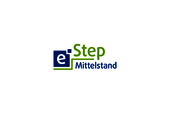
eStep Mittelstand
The aim of the project is the analyses of the use of eBusiness Standards in companies. Identification of typical sets of standards in use for characterisitic problems. Development of formal guidlines and toolings to enable companies to derive a optimized usage of eBusiness Standards.

Eco2Production
As a follow-up project of eco2-cut, eco2production was aiming to support companies in their goal to achieve an holistic optimization of their energy consumption. Therefore the following 4 objectives were given: Development and implementation of an energy-monitoring-concept, benchmarks of machines and processes as the foundation for the energetic optimization of the value chain, formulation of the necessary modules of an energy-management-system and the development of an energy efficient production planning.
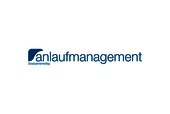
Graduiertenkolleg Anlaufmanagement
The goal of the ramp-up management graduate college is to guard the ramp-up management against/over the systematic improvement of individual decisions. Junior staff scientists should be trained to experts, over the education character of the graduated college in regard of the behaviour of a concrete decision problem, the ramp-up management.

SelfOrder
The main objective of the project was the design of a decision support for the order initiation of small and medium-sized enterprises with a huge amount of short-term incoming orders in overload situations.
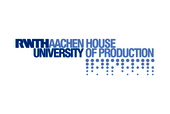
CoE D-1
The Aachen Cluster of Excellence "House of Production" aims at controlling the complex interplay of heterogeneous processes in a highly dynamic environment in high-wage countries. The central hypothesis in the sub-project D-1 is that establishing mechanisms of self-optimisation leads to a quicker achievement of an optimum under changing input parameters. The Vision is to design a viable and changeable production management system to improve the dynamical adaption to optimal operating points.
SoReMa
This project aimed to develop a valid and comprehensible decision support for choosing a material planning logic, according to the respective situation and the defined objectives. Further, the decision support should be combined with existing, adaptive material planning methods within present IT-systems. Thereby a self-optimizing procurement characterized by the interaction between material planner and IT-system should be reached and enable a dynamic adaption to the dynamic environment.

Chain in Change (CIC)
A model of recomendation for a customer-supplier interface which allows an adaptive logistics in a dynamic business environment.
Green-Net
In Green-Net, a method to support decisions on selecting and implementing logistics concepts which takes into account was developed. This was be done by developing a method for the quantitative ex-ante-evaluation of the influence of logistics concepts on economical and ecological parameters.
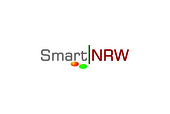
Smart.NRW
Smart.NRW aimed at creating an RFID-based self-optimizing Supply Chain. Therefore following results were developed: Method for automated determination of optimal transponder type and position, production technologies for integration of RFID transponders into cases and adaptive planning and control mechanisms for optimizing and stabilizing the supply chain.

OSE
Purpose of the OSE research project was the development of a measurement model which aimed at making the order processing efficiency of industrial services ascertainable and assessable based upon types of waste. Therewith, the basis was laid for well-directed and efficiency increasing improvements.

EUMONIS
The aim of the project was to design and realize service and cooperation concepts for a prospective operation of facilities for generating sustainable energies. Thereby the focus was on the three areas of wind-, solar- and bioenergy. This innovative and holistic approach addéd a significant value to design the “power plant of the future”.

WInD
A superordinated goal of the research project WInD was the conception of a versatile production system for the branch of mechanical and plant egngineering. The coordination ability in production networks, which is very important for this branch , was supposed to be increased significantly.
Rebound Logistics
Rebound Logistics aimed at supporting small- and medium-sized manufacturing companies to efficiently integrate returning product flows into existing structures by developing design options for an integrated Reverse Supply Chain.

eco2cut
The goal of the project was the realization of manufacturing processes with increased energy efficiency under the aspect of an enhanced environmental sustainability.

inTime
The aim of the research project inTime was to increase the logistic effectiveness and thereby to reduce costs in in non-hierarchical manufacturing networks of machinery and equipment industry.

HybridChain
The goal of the research project was the development of a procedure which enables the enterprise to indetify adequate SCM-concepts and their definitive combination ex ante.

IMS2020
The aim was the future orientated development of intelligent production systems for the year 2020.

ACC-EC
The goal of the Aachener Competence-Centre was to support small and medium-sized companies cross-industry in the region of Aachen by the introduction of e-business solutions.

Smart Watts
The goal of Smart Watts was to optimize the complete energy value chain from generation, trading, distribution to consumption by enhancing it with energy related information.
CBS-Net
The aim of the CBS-Net was to support enterprises at the decision for the realisation of supply chain management concepts.

SupplyTex
The objective of this research project was to develop a tool targeted for the demands of the textile and apparel industry for the selection and implementation of procurement strategies and SCM concepts. It should support independent persons for the different product classes in the apparel industry to configure, choose, implement individual SCM and procurement strategies and verify their use.
NetAssess
The objective was the development of models and methods for a simulative evaluation of reference processes in supply chains.

MSCO
The aim of the project MSCO was the development of a new logistic concept for needs based spare part management in the maintenance.

High-Resolution-Supply-Chain-Management (HRSCM)
The goal of the HRSCM was to develop methods, which enable producing enterprises to focus early and proactively on different frame conditions through adaptive process creation.

Flexible Configuration Logic for Integrative Production
The goal of the project was to create production techniques supporting a meaningful economic production in high-wage countries.

Tool-East
The objective of the Tool-East-Project was the amplification of existing ERP-/PPS-systems with special ERP- and CRM-functions for an affordable implementation and in small and medium sized companies in Eastern Europe.

InCoCo-S
In order to integrate industrial services into manufacturing value chains, one goal of the InCoCo-S consortium was to develop a reference model (InCoCo-S Reference Model (IRM)) for business processes. This structured approach for the rationalization of processes in business practice comprises business processes, key figures and proven methods for measuring, evaluating and optimizing service performance.

MYCAREVENT
The goal of MYCAREVENT was an integratet mobile service in the automobile after sales market.
